There’s no doubt that getting daily fresh eggs is a great benefit of having a backyard flock, but did you know there are a whole host of ways that chickens can help your vegetable garden too?
The popularity of raising backyard chickens has grown substantially in the last few years. It seems like between all the adorable chicken coops popping up on Pinterest to the fun and always entertaining YouTube shorts and Instagram Reels, more people than ever have turned to raising chickens.
And it’s not just people who have a few acres of land getting in on the fun either. More and more communities and municipalities have started allowing people to have small flocks of chickens even within city limits.
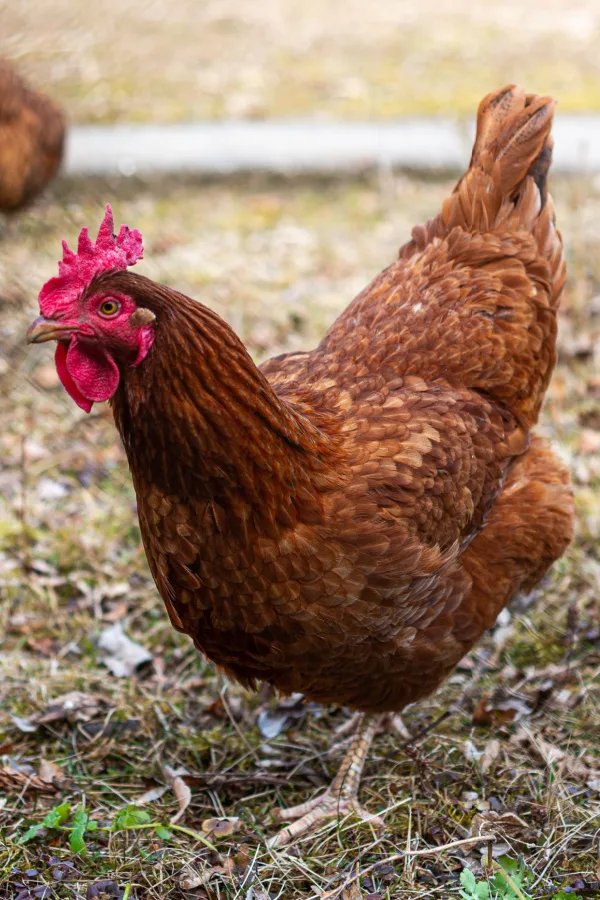
One of the biggest perks of raising chickens is of course having fresh and nutritious eggs at your disposal. The store-bought eggs just don’t stand a chance. Once you’ve tried a farm-fresh one with its bright yellow yolks and rich flavor, you won’t turn back.
Whether you have six chickens or many more, there are lots of ways chickens aid gardeners beyond just eggs. Maybe after checking out the following five benefits, you will start looking into your own community’s rules and regulations and consider having your own flock of chickens.
How Chickens Help Vegetable Gardens
Chickens are really one of the easiest “farm animals” to raise for most families. As long as you provide them with healthy complete chicken feed, fresh water, a dry and draft-free shelter, and a protected place to roam, then you are on the right path.
Chickens do well in most climates and environments. There are certain breeds that fair better in colder climates. And there are breeds that can handle the heat and humidity of the south. Be sure to do a bit of research before choosing what chicken breeds you order based on your living conditions.
Pest Management – Chickens Help Vegetable Gardens
When you have chickens that roam your property, you essentially have a built-in pest control system always at your disposal. Chickens love to chase and eat bugs and insects of all shapes and sizes. From tiny aphids to cabbage worms to grasshoppers to ticks, these insects are all fair game.
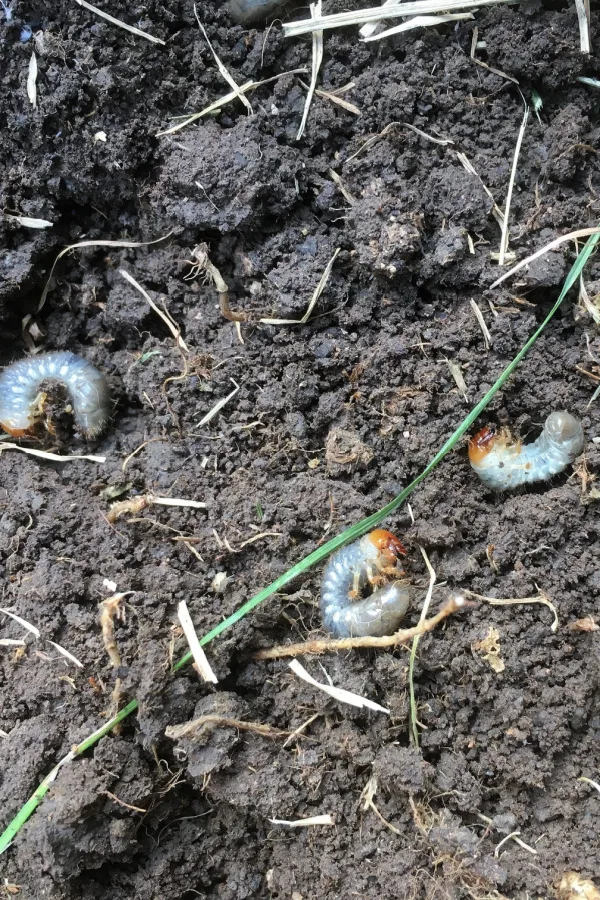
In addition to the adult insects, chickens will also consume all stages of an insect’s lifecycle. Insect larvae and moth stages are also well sought after by chickens.
Do you often have a garden that has been overtaken by invasive Japanese beetles? These devastating insects decimate plants in just a day or two. Chickens will help to consume their larvae by scratching at the soil and digging up the nasty little grubs. That helps to eliminate the pests before they even have a chance to get to your crops in the summertime.
You don’t really want the chickens to have free reign of your garden once your plants have started to grow. However, it is a great idea to let them roam your garden in early spring prior to planting.
Do the same thing again after you’re done harvesting in late fall. That will help to get those insects that plan on overwintering in your soil. You can always place a fence around any crops you want to keep the chickens away from.
Your chickens will enjoy the tasty snacks and you will get to enjoy a pest-free garden!
Egg Shells For Calcium – Chickens Help Vegetable Gardens
Yes, you can consume fresh, delicious, and rich eggs. But you can also use eggshells to help power and protect your garden plants! The eggshell is packed with calcium and other trace nutrients and minerals.
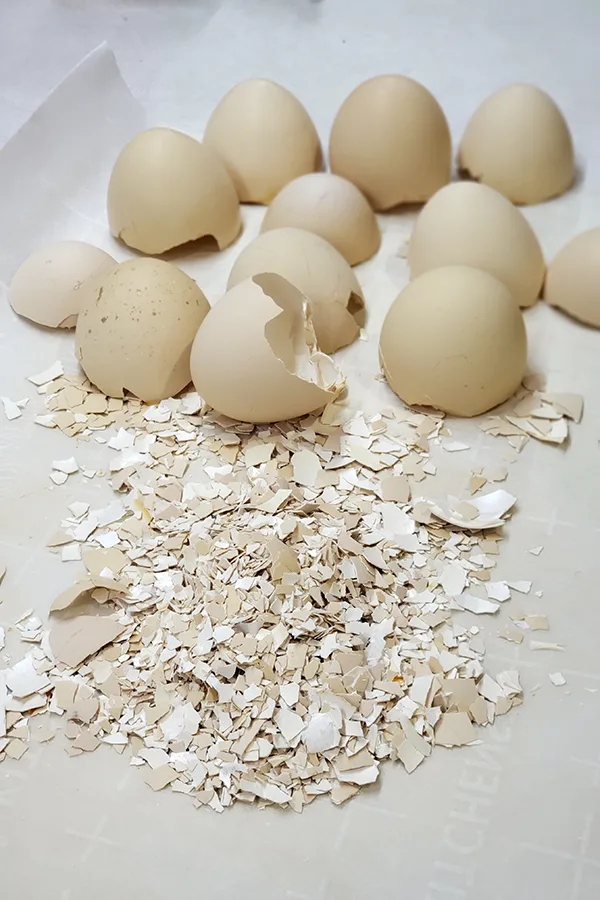
Many garden plants can benefit from a calcium boost if your soil is lacking in nutrients. If you often encounter blossom end rot, then your soil can likely use some help with the added calcium of egg shells.
You can also use the broken-up egg shells to add to your compost pile instead of adding them to the soil around specific plants. Or, add a handful to your potting soil the next time you go to fill your hanging baskets.
Another way that egg shells can benefit garden plants is for protection. If you have an issue with slugs, simply create a layer of eggshells around vulnerable plants and vegetables. The slugs can’t crawl over the sharp edges of the shells without injuring their outer skin.
Manure Side Dressing – Chickens Help Vegetable Gardens
There’s no question that chicken manure is one of the best natural and easy-to-get fertilizers available for gardeners. It is packed full of nitrogen in addition to all sorts of nutrients and organic matter.
Your chicken manure and litter can be used as a “hot” side dressing for mature vegetables and other garden plants. Allow the manure to dry and mature for a while before using.
Once it has aged slightly, place the manure about six inches away from the stem or base of each plant. Do not allow the manure to touch the stems or else the high levels of nitrogen can burn the delicate foliage.
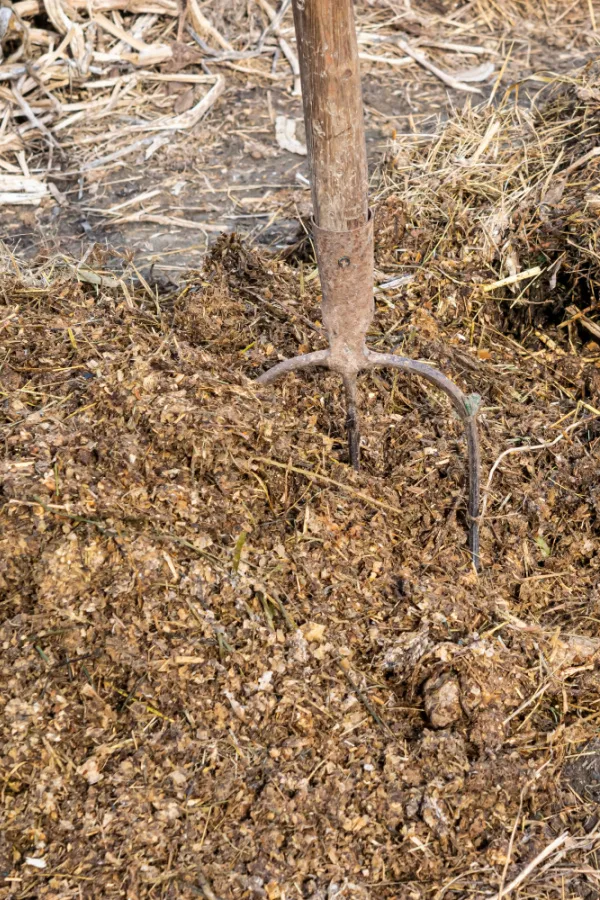
As the manure breaks down over time, it will start to leech nutrients and nitrogen into the soil. This helps to slowly power your plants through the growing season.
Great Compost Ingredients – Chickens Help Vegetable Gardens
Another way to use your chicken manure and litter is to add it to your compost pile. The high level of nitrogen really helps to heat up compost piles, allowing the materials to break down quickly.
Whether you use straw, wood chips, or even sand as your litter source for the chickens, you can add all of those materials in addition to the manure to your home compost pile. Even their feathers that have been shed during molting season can go into your compost pile.
These materials are considered to be “green” materials when it comes to composting. The manure and litter will help to quickly break down the “brown” materials. Items like dried leaves, dead grass, and paper products, are all brown materials. This results in the perfect black gold that gardeners rely on for a great-producing garden.
Another great benefit of using chicken manure that is naturally “hot” is that a hot compost pile will be more efficient at killing off any pathogens or weed seeds that might have made their way into your compost pile.
Weed Control – Chickens Help Vegetable Gardens
Lastly, in addition to eating insects and pests galore, chickens are also excellent at consuming and helping to control garden weeds as well.
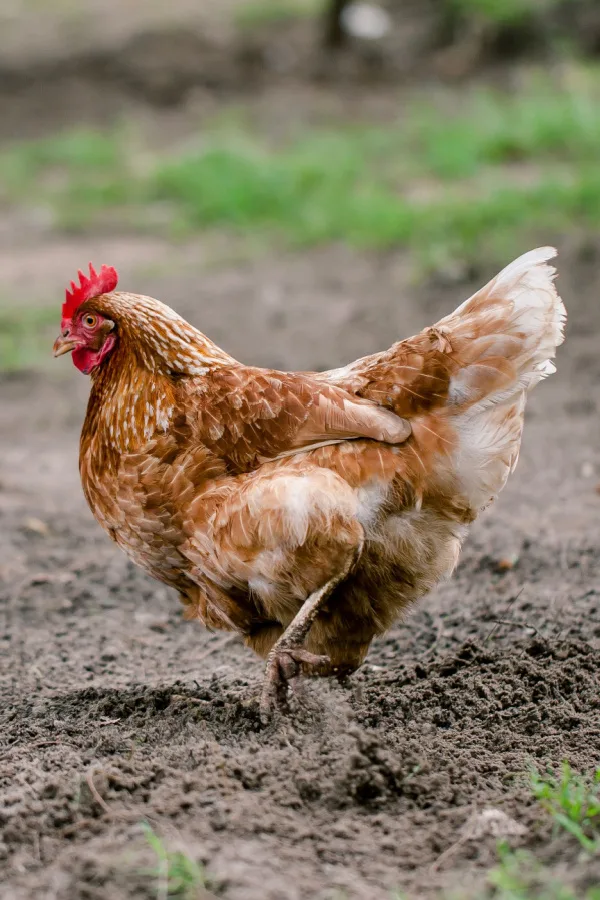
When you let your chickens out to roam your garden in early spring, they will scratch at the soil to unearth any bugs. In addition, they will also scratch up any weed seeds that might have made their way into your garden soil during the winter months.
While you can help to control weed seeds by using cover crops, it sometimes just doesn’t work out or maybe some of your cover crops just didn’t germinate as well either. Your chickens can help take care of the seed problem by eliminating all seeds right at the source.
Just keep in mind that if you have recently planted your garden or have seedlings coming up, the chickens won’t be able to tell the difference between a growing vegetable crop and a weed!
While there are many additional benefits with raising chickens and gardening, these five ways are certainly reason enough to start thinking about having a few of your own chickens for the coming garden season!
Follow Our Facebook Page For Even More Great Tips! Simple Garden Life Facebook Page
Simple Garden Life is a website dedicated to keeping gardening fun, simple and enjoyable! We publish two new articles each week along with a new garden podcast episode every two weeks. This article may contain affiliate links.
